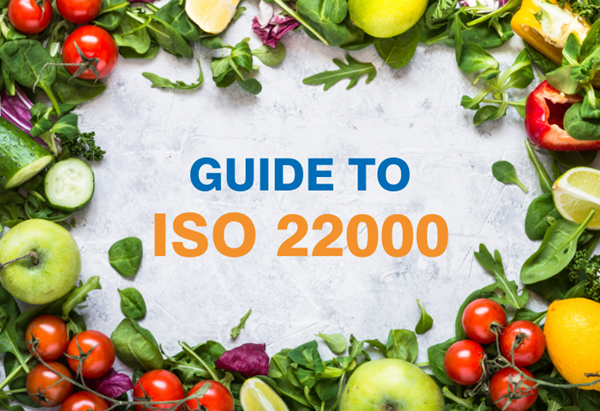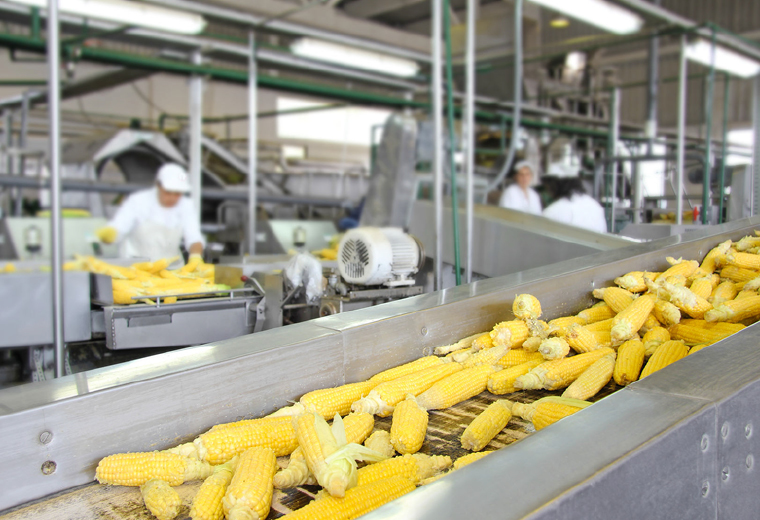HACCP: Food Safety Management
What is HACCP?
Hazard Analysis and Critical Control Points (HACCP) is the most internationally recognised system based on production of safe food from a preventative approach. The guidelines for its application are established in the Codex Alimentarius GENERAL PRINCIPLES OF FOOD HYGIENE CXC 1-1969 (2020).
A HACCP based system is a legal requirement in several countries, including USA and UK, at all levels of the food chain.
Demonstrating a real commitment to food safety through HACCP compliance can also transform your brand and act as an effective entry-to-market tool, opening up new business opportunities around the world.
To get a quote for certification and to be HACCP approved, simply download our interactive Quote Request Form, fill it in and return it to our sales team.
Helps you with
- Food safety
- Risk management
- Hazard analysis
- Critical points
- Production safety
- Contamination risk
- ISO 22000
- Supply chain
- Food chain
- Customer needs
Benefits of Food Safety Certification
Cuts investigation time to a minimum
The management system helps you to reduce food safety breach investigation time.
Customer satisfaction
Deliver products that consistently meet customer requirements and a service that is dependable and can be relied on.
Global recognition as a reputable supplier
Certification is recognized internationally and accepted throughout industry supply chains, setting industry benchmarks for sourcing suppliers.
Proven business credentials
Independent verification against a globally recognized industry standard speaks volumes.
Legal compliance
Understand how statutory and regulatory requirements impact your organization and its customers.
Ability to win more business
Procurement specifications often require certification as a condition to supply, so certification opens doors.
Respond to situations
Ideal for responding to situations that can compromise the food safety of both products and production processes.
Is HACCP right for my organization?
Hazard Analysis and Critical Control Points (HACCP) certification instantly demonstrates to customers your commitment to producing or trading in safe food. This evidence-based approach can be particularly beneficial when you are subjected to inspection by regulatory authorities or stakeholders.
An NQA HACCP certificate will give your business improved credibility and recognition due to NQA’s standing as a recognised international certification body.
This can be used by any organization directly or indirectly involved in the food chain including food service providers (canteens, restaurants, fast food chains, caterers, hospitals, hotels, etc.), farms, fisheries, dairies, processors of food for both human and livestock consumption and supporting services such as transporters and distributors.
Organizations that implement HACCP must comply with GMP, Good Manufacturing Practices, as they are a mandatory requirement included within the HACCP standard. However, it is possible to certify each individually.
Certifiable and voluntary food safety management systems (ISO 22000, FSSC 22000 etc.) are based on the implementation of a HACCP system to ensure food safety.
Benefits of HACCP certification
The 7 Principles of HACCP are:
1. Conduct a Hazard Analysis Determine critical control points for each hazard identified
2. Identify critical control points
3. Set critical limits
4. Carry out monitoring
5. Carry out corrective actions
6. Log records
7. Check effectiveness verification.
What Does HACCP Mean For Food Safety
- Encourages a more effective use of your resources
- Reduces costs by avoiding unsafe productions
- Enables your company to act quickly and effectively in the event of a food safety emergency
- Builds customer and health authorities trust
- Reduces barriers to international trade
- Helps your food company competes more effectively in the world market
Steps to Certification
-
Step 1
Complete a Quote Request Form so that we can understand your company and requirements. You can do this by completing either the online quick quote or the online formal quote request form. We will use this information to accurately define your scope of assessment and provide you with a proposal for certification.
-
Step 2
Once you’ve agreed your proposal, we will contact you to book your assessment with an NQA Assessor. This assessment consists of two mandatory visits that form the Initial Certification Audit. Please note that you must be able to demonstrate that your management system has been fully operational for a minimum of three months and has been subject to a management review and full cycle of internal audits.
-
Step 3
Following a successful two stage audit, a certification decision is made and if positive, then certification to the required standard is issued by NQA. You will receive both a hard and soft copy of the certificate. Certification is valid for three years and is maintained through a programme of annual surveillance audits and a three yearly recertification audit.



